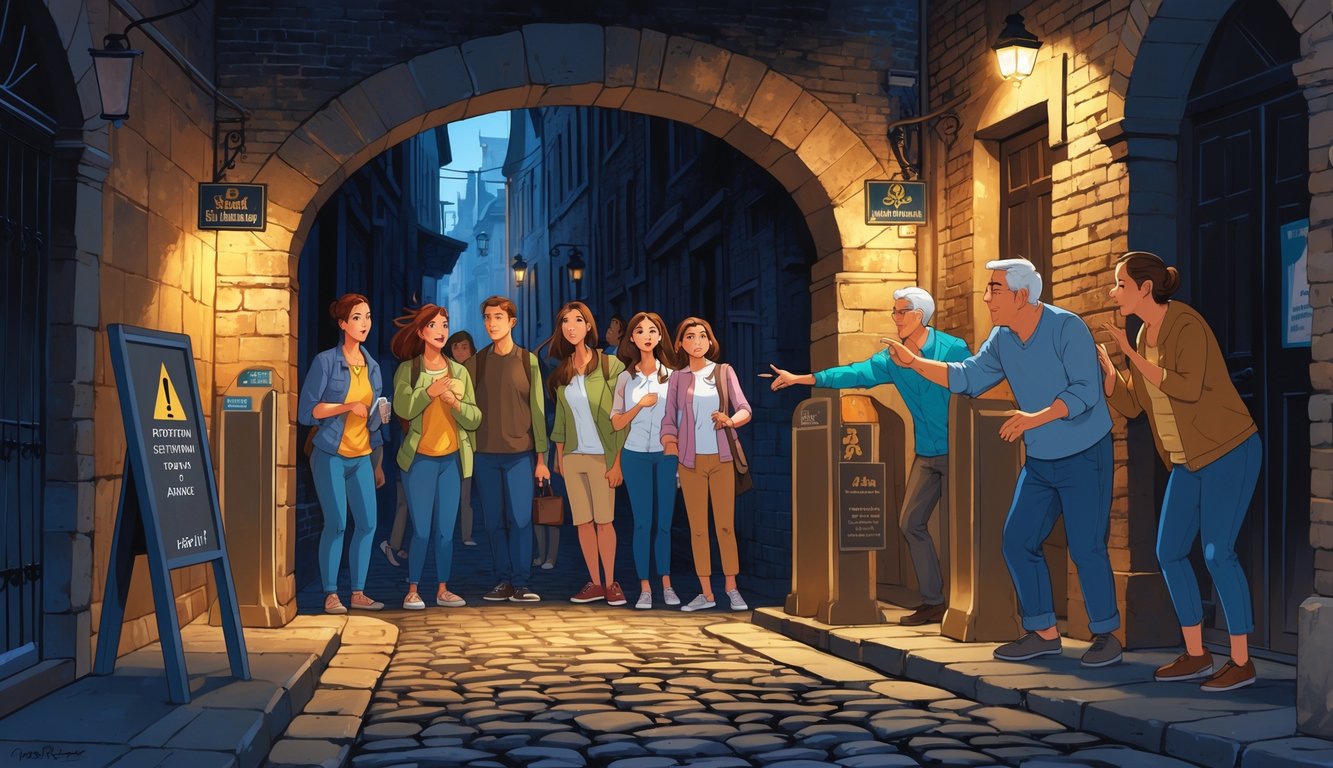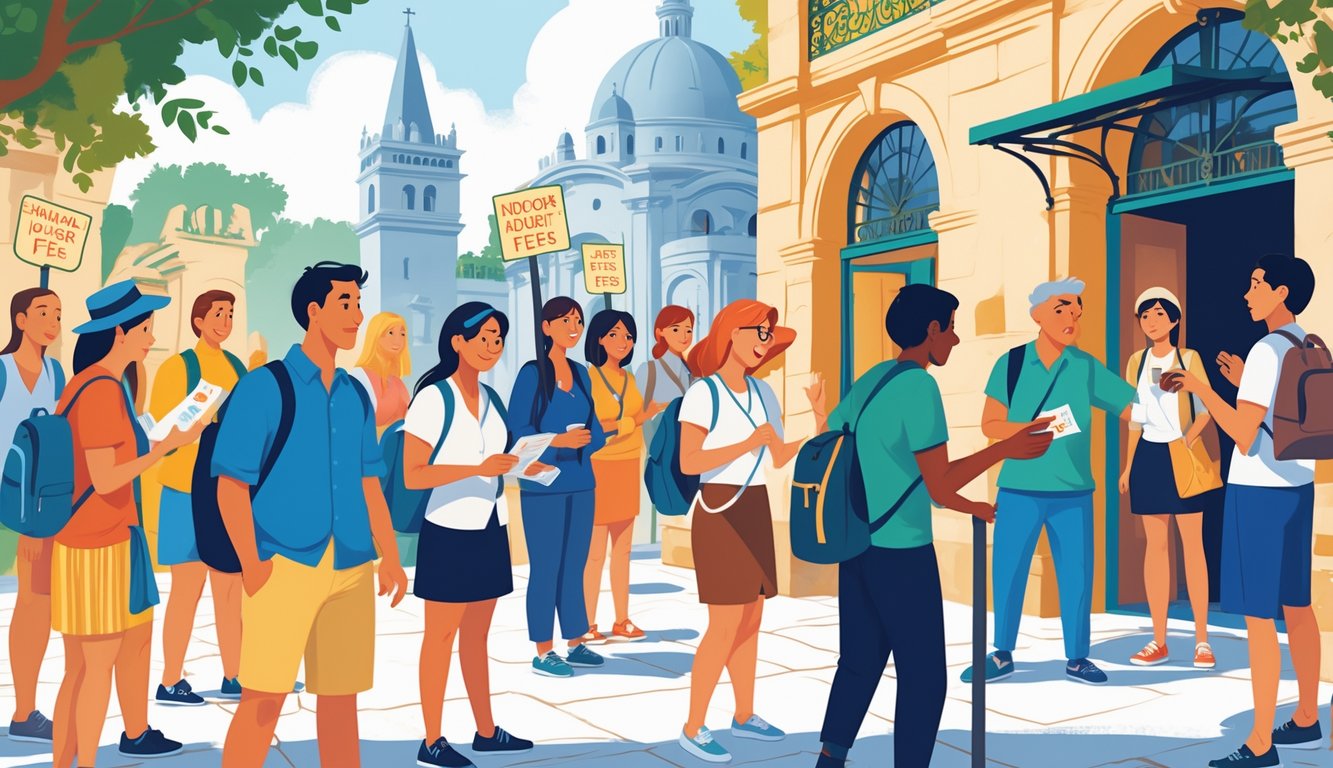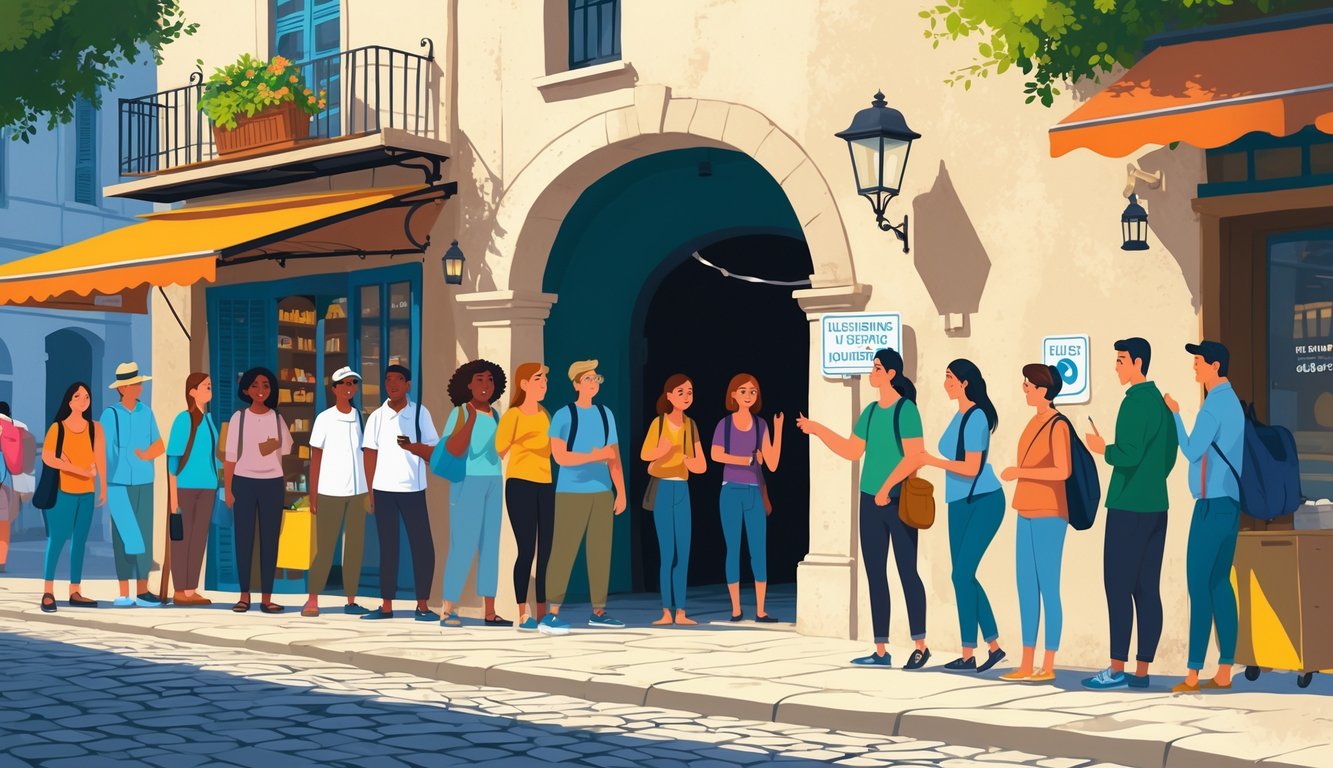
Paid 22 euros for a “short scenic shortcut” tunnel last month—nobody warned me until I was already awkwardly hunched at the ticket kiosk, holding up a line and butchering the local language. Found the warning later, taped to a lamp post, scrawled in angry marker by some local who probably got fleeced even worse. Locals keep saying: these sneaky passage, crossing, or random municipal fees hit tourists harder every year, especially if you’re not squinting at the fine print on booking sites.
Started thinking about that infamous bridge charge in Venice; a gondolier grumbled it’s doubled “since the influencers showed up.” And the city taxes? Baked into every Airbnb, never mentioned until checkout. The funicular in Lisbon—security guard just grunted about an “equipment maintenance” fee, handed me a limp wristband, and moved on. I got suspicious, asked hotel staff, and got a theatrical eye roll plus a story about someone’s cousin who got locked in a spa locker because the coin slot only works with local currency on Wednesdays (or was it weekends? Whatever). And still no clue why every Prague bike rental wants you to buy “passage insurance.”
Here’s what bugs me: official websites barely admit these surcharges exist, but every local goes full confession booth about which attractions will bleed your wallet dry. I’m not reading railway bylaws in my free time or skipping ferries over a few euros, but these tolls? They’re weirdly legal, weirdly legendary, and nobody warns you until you’re already juggling coins in line and getting elbowed by someone who’s clearly over it.
Why Hidden Passage Fees Are Catching Tourists Off Guard

Everything seemed fine until my card history looked like a haunted spreadsheet—random tourist taxes wedged between cab receipts and that extra “convenience fee” my tour guide just shrugged at. Complaints pile up. I’m drowning in receipts, comparing booking platforms, and still stuck on one thing: why does travel seem basically built on hidden fees?
Understanding Hidden Travel Fees
Wedged between obvious costs and invisible ones, my suitcase feels lighter than my bank account. The “final price” is never final. Baggage fees show up after you pick your flight. Resort fees sneak in at check-in, even if you never see the gym or pool—CNN ran a whole piece on these “nibbling” fees.
Tried to argue a “security surcharge” on a museum ticket once. The clerk just pointed at a taped-up policy and grinned. NerdWallet’s travel people say airfare and hotel sites bury real costs in tiny footnotes; Statista’s survey says “unexpected charges at check-in” is a top headache for US travelers.
Companies train staff to “customize” invoices with upgrades that are somehow not optional. Traveler forums are full of warnings about hidden travel fees—and even after years, I still show up in a new city and get whacked with extra charges because a law changed or a tourist tax doubled last quarter.
Common Tourist Pitfalls
First time I got hit with a “heritage preservation fee” was after climbing a European bell tower. It’s not just tickets—booking fees slide in at the last second on “no-fee” apps. Airbnb cleaning fees are a meme now—sometimes the “cleaning” is just folding the same towel in half.
Locals warn about “convenience surcharges” at busy attractions. I keep reading stories—like that one on Rolling Out—about travelers who reach the gate and find a mandatory shuttle transfer charge nobody mentioned. And airport booths hawking “express tourist sim cards”? Add an import tax and activation fee when you’re jet-lagged (don’t ask how I know).
It’s the randomness. Some café adds a “music royalty fee” if there’s live music. The travel industry’s surprise charges are almost impressive. My friend in Bangkok got a “rainy season sidewalk surcharge.” Where does it stop? I never figured out why my Venice gondola ticket cost ten euros more than advertised, but the receipts don’t lie—just like those overpriced t-shirts.
Insider Tips Locals Want Tourists To Know

Trying to dodge hidden passage fees? Bracelet scams, $5 water, or those vague “resort” taxes—my brain still hurts from the receipts. Some locals rant about it in Facebook groups, others just hand over cash and move on.
Local Advice on Avoiding Surprise Charges
So, last week at a packed Prague metro station—zero signage about the random turnstile “upgrade” charge, but Pavel (driver, shoes older than me, definitely a local) goes, “Always double-check ticket machines; English prompts cost extra.” Not even kidding. EuroTravelMonitor claims 32% of tourists get stung by these sneaky transit fees.
Another trick: cash-only “facility fees” at restaurants, hidden at the bottom of the bill in tiny font. Not just Italy—Vegas does it too (Forbes, May 2025). Locals teach each other in WhatsApp chats to ask, “Final price, all fees?” before ordering, which feels awkward but saves a ton of hassle. Not bragging, just practical. Also, translate your receipt; sometimes an extra fee line only pops up in the local language.
Nobody warns you about bathroom attendants hustling for €2 in train stations. Carry coins or prepare for an awkward standoff.
Recognizing Legitimate Versus Unfair Fees
What even counts as “legitimate”? City transit tax—okay, whatever, at least it’s on paper. But a “service fee” for unlocking a door in an old neighborhood? No way, especially when locals just laugh about it at the bakery.
Transparency is a joke. Some hotels—apparently two-thirds in EU capitals, Statista April 2025—itemize fees in pre-book emails, but I still watched a “sanitation surcharge” sneak in because the owner said “everyone pays it.” Meanwhile, locals dodge the whole mess by booking direct with a handshake or using some obscure local app with a login screen from 2004. (“Go native or get nickeled-and-dimed,” Lina, Airbnb superhost, told me.)
I started snapping photos of posted rates and receipts. Does it help? Maybe. It’s more fun watching locals wave off the fees with a sigh. Honestly, the only way to spot a scam is to see who’s arguing—hint: not the locals.



